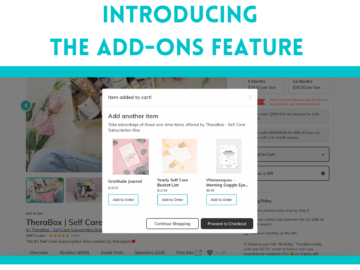
Choosing a name for your business is a daunting task. This is especially true if you have multiple partners and are trying to reach a consensus.
A name is the identity that will drive your company and will often be the deciding factor for customers choosing between two similar products or services. A great name tells a story, legitimizes your business and inspires brand advocates. The foolproof way to create a business name that sells is to embark on a good ol’ brainstorm session.
Here are four things to consider when brainstorming a company name:
1. Do Your Homework
One of your first steps before creating your company’s name should be to research your industry and important keywords. Really think very hard about this one, because the more your name explains about your business the less you will have to tell others. Any words that convey meaning about the service your business provides are a great place to start. My favorite tools are:
- OneLook Reverse Dictionary: http://www.onelook.com/reverse-dictionary.shtml
- Online Etymology Dictionary: http://www.etymonline.com/
- Wikipedia: http://www.wikipedia.org/
For Cratejoy, our list was:
✓ Subscription
✓ Start
✓ Box
✓ Mail
✓ Member
✓ Easy
✓ Recur
✓ Again
✓ Order
✓ Idea
✓ Ship
✓ Business
✓ Company
✓ Shop
✓ Store
✓ Online
✓ Platform
✓ Build
✓ Design
✓ Discover
✓ Enjoy
✓ Billing
2. Wordplay Is Your Friend
This part lets you channel some creativity. Think of symbols or metaphors that apply to the first list you made or that you think relate to your business. Compound words work nicely in this section. One of my favorite examples of a company that chose a metaphor is the online travel search engine Kayak. They don’t literally sell kayaks, but they do sell a streamlined user experience that helps people “stay afloat” and find their own travel adventure at the best price.
Warning: Toying with words until you come up with something great is common. But using basic puns, trendy phrases or cliches is not the best way to name your business. Trends change often and cliches are stale. Both great and terrible names result from this step. Use your judgement!
My favorite tools for this are:
- Visuwords: http://www.visuwords.com/
- Mondofacto: http://www.mondofacto.com/word-tools/visualiser.html
3. Don’t Copy
Looking at competitor names to see what’s out there is a good idea, but you should stay away from copying words or name structure exactly. Your name should give you a competitive advantage that helps you stand out from the crowd. Carve your niche with a unique name that shows personality. Differentiating yourself with a solid name can also help you climb the search engine (SEO) rank.
4. Try Something Foreign
Sometimes there really aren’t enough words in the English language. If you’re convinced all the relevant keywords are taken, try a word or phrase from a different language. It’s important that whatever word you choose is easily recognizable to English speakers.
The controversial transportation startup Uber is a great example of choosing a foreign word with ties to popular culture. Uber means “across” or “over” in German and was coined by a philosopher that used it to describe “a higher state to which one might aspire.” Both of these meanings fit perfectly into Uber’s luxury brand and services.
If you decide to go the foreign route, make sure you research all possible meanings. A name with a negative undertone or definition can quickly turn into a PR disaster, something a new business or startup should avoid at all costs.
Now that you’ve brainstormed a whole bunch of options, make sure to ask your partners, friends, and family for their opinions. The people closest to you are the best focus group because they’ve probably heard you talk about your business before, understand what you’re trying to accomplish and may also be your target audience. Pick your favorite 3-4 names and have them weigh in on what you have.
At the end of the day, this is a tough decision to make, and a little help goes a long way.
What are some of the best and worst company names you’ve ever seen?


